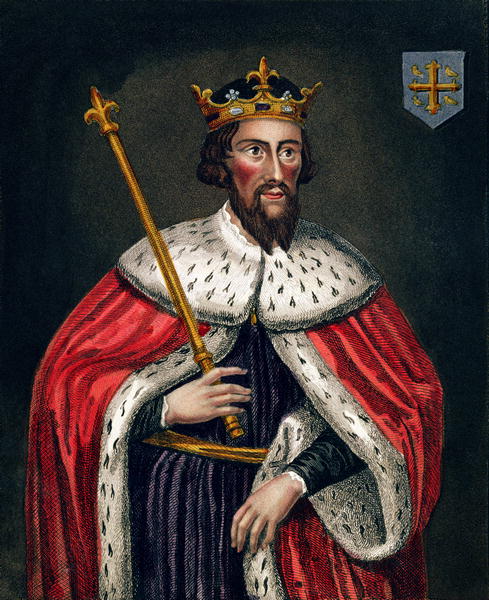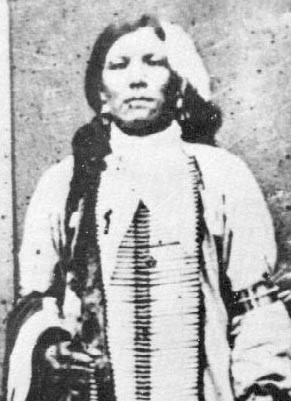This article provides a detailed exploration of significant historical events that occurred on January 8th, spanning various centuries and continents. From pivotal battles and political milestones to cultural and social turning points, each event encapsulates a moment of historical importance.
The narrative unfolds chronologically, beginning with Alfred the Great’s leadership in the Battle of Ashdown in 871 and progressing through key events like George Washington’s first State of the Union address, the formation of the African National Congress, and pivotal moments in world politics and culture.
This journey through history not only reflects the specific happenings of January 8th but also offers a window into the broader human story, marked by struggle, triumph, innovation, and transformation.
January 8th Events in History
871 – Alfred the Great leads a West Saxon army to repel an invasion by Danelaw Vikings in the Battle of Ashdown
On January 8, 871, Alfred the Great, who would later become the King of Wessex, led the West Saxon army against the invading Vikings in the Battle of Ashdown, located in what is now Berkshire, England.
Also Read: January 7 – On this Day in History
This battle was a part of the Viking invasions of England and is notable for being one of Alfred’s early military successes. The West Saxons successfully repelled the Vikings, marking a significant moment in the resistance against Viking conquests in England.

1297 – Monaco gains its independence
On this day, the Genoese leader Francesco Grimaldi captured the fortress that stood on the Rock of Monaco. Dressed as a Franciscan monk, Grimaldi and his men entered the fortress and established control over the area.
This event marked the beginning of the Grimaldi family’s long rule over Monaco, and it’s considered the moment when Monaco gained its independence, eventually becoming a sovereign city-state.
1499 – Louis XII of France marries Anne of Brittany
Louis XII, King of France, married Anne of Brittany on January 8, 1499. This marriage was significant for political reasons, as it effectively brought Brittany into the domain of the French Crown.
Also Read: January 9th Events in History
Anne was initially married to Charles VIII, Louis’s predecessor, and her marriage to Louis XII was orchestrated to strengthen the French monarchy’s hold over Brittany, which was one of the last independent territories within the Kingdom of France.
1642 – Galileo Galilei, the Italian astronomer, physicist and engineer, dies in Arcetri, near Florence
Galileo Galilei, a renowned Italian astronomer, physicist, and engineer, passed away on January 8, 1642. Galileo is a key figure in the scientific revolution and is known for his contributions to the fields of astronomy, physics, and scientific methodology.
He championed the use of the telescope in astronomical observations and supported the Copernican theory that the Earth and planets revolve around the Sun, a stance that led to his famous trial and house arrest by the Inquisition.
1746 – During the Second Jacobite Rising, Bonnie Prince Charlie occupies Stirling
During the Jacobite Rising of 1745-1746, Charles Edward Stuart, known as Bonnie Prince Charlie, led his Jacobite forces to occupy Stirling on January 8, 1746. This was part of his attempt to restore the Stuart dynasty to the throne of Great Britain.
The occupation of Stirling was a significant military maneuver, as it opened the way for the Jacobites to march south into England. However, the campaign ultimately failed, leading to the decisive defeat at the Battle of Culloden in April 1746.

1790 – George Washington delivers the first State of the Union address in New York City
On January 8, 1790, George Washington delivered the first State of the Union address in American history. This address took place in New York City, which was then the provisional capital of the United States.
Washington’s speech outlined the new federal government’s priorities, emphasizing national defense, foreign affairs, education, and other public matters.
1815 – The Battle of New Orleans – Andrew Jackson leads American forces in victory over the British
The Battle of New Orleans, fought on January 8, 1815, was a significant American victory in the War of 1812. Andrew Jackson led American forces against the British in what is now Louisiana.
Despite the Treaty of Ghent ending the war, the news had not yet reached the United States, so the battle still occurred. Jackson’s triumph, against overwhelming odds, became a symbol of American resilience and determination.
1835 – The United States national debt is zero for the only time
On January 8, 1835, for the only time in its history, the United States national debt was completely paid off, and the country briefly became debt-free.
This achievement occurred under President Andrew Jackson, who was a strong advocate for paying off the national debt. However, the surplus funds soon led to reckless government spending and the Panic of 1837, a major financial crisis.
1867 – African American men are granted the right to vote in Washington, D.C
On January 8, 1867, African American men were granted the right to vote in Washington, D.C. This legislative act was an important step in the broader struggle for African American civil rights in the United States, coming three years after the Civil War and during the period of Reconstruction. It preceded the 15th Amendment, which would grant African American men the right to vote nationwide.
1877 – Crazy Horse and his warriors fight their last battle against the United States Cavalry at Wolf Mountain, Montana Territory
The Battle of Wolf Mountain, fought on January 8, 1877, in the Montana Territory, was one of the last significant battles of the Great Sioux War of 1876-77, also known as the Black Hills War.
Crazy Horse and his group of Lakota Sioux warriors clashed with the United States Cavalry, led by Colonel Nelson A. Miles.
Despite being outnumbered and facing harsh winter conditions, Crazy Horse and his warriors resisted fiercely but eventually had to retreat. This battle was one of the final resistances of the Northern Plains Indians against U.S. government forces.

1912 – The African National Congress is formed
The African National Congress (ANC) was formed on January 8, 1912, in Bloemfontein, South Africa. It was initially established as the South African Native National Congress to unite African people and spearhead the struggle for fundamental political, social, and economic change.
The ANC played a pivotal role in the fight against apartheid, which was a system of institutionalized racial segregation and discrimination in South Africa.
Over the years, it transformed into the principal political movement leading the campaign against apartheid, with prominent leaders such as Nelson Mandela.
1918 – President Woodrow Wilson announces his “Fourteen Points” for the aftermath of World War I
On January 8, 1918, U.S. President Woodrow Wilson delivered a speech to the United States Congress outlining his “Fourteen Points,” a statement of principles for peace to be used for peace negotiations to end World War I.
The points included proposals for adjusting post-war boundaries, establishing new nations, and promoting free trade and open diplomacy. The Fourteenth Point called for the creation of a League of Nations, an international organization aimed at preventing future conflicts.
1926 – Abdul-Aziz ibn Saud becomes the King of Hejaz and renames it Saudi Arabia
On January 8, 1926, Abdul-Aziz ibn Saud, the founder of the modern Kingdom of Saudi Arabia, was declared the King of Hejaz. Hejaz was a region in the Arabian Peninsula, known for containing the holy cities of Mecca and Medina.
Following his conquest of the Hejaz region, Abdul-Aziz ibn Saud united his dominions into one kingdom and, in 1932, renamed it Saudi Arabia. His rule laid the foundations of the contemporary Saudi state.
1935 – Elvis Presley, the American singer and actor, is born in Tupelo, Mississippi
Elvis Aaron Presley, one of the most significant cultural icons of the 20th century, was born on January 8, 1935, in Tupelo, Mississippi. He is often referred to as the “King of Rock and Roll” or simply “The King.”
Presley’s energizing and distinctive voice, blend of various music styles, and groundbreaking impact on the music industry made him a legendary figure in rock and roll history.

1959 – Charles de Gaulle is inaugurated as the President of France’s Fifth Republic
On January 8, 1959, Charles de Gaulle was inaugurated as the President of France’s Fifth Republic. This followed the establishment of the Fifth Republic’s constitution in 1958, largely drafted by de Gaulle, which created a more powerful role for the President.
De Gaulle’s presidency marked a significant period in French history, characterized by considerable political stability and economic growth, as well as a firm stance on national independence in foreign policy.
1961 – A referendum in France approves the election of the President by direct popular vote
On January 8, 1961, a referendum was held in France concerning the election of the President. The French public voted in favor of electing the President by direct popular vote, rather than by an electoral college.
This change was a significant shift in the French political system and was a key reform of the Fifth Republic, further strengthening the power of the presidency, a move largely supported by then-President Charles de Gaulle.
1973 – The trial of the Watergate burglars begins in Washington, D.C
The trial of the Watergate burglars began on January 8, 1973, in Washington, D.C. This trial was a crucial development in the Watergate scandal, a major political scandal in the United States that occurred during and after the 1972 presidential election.
The scandal stemmed from a break-in at the Democratic National Committee headquarters at the Watergate office complex and the Nixon administration’s subsequent attempts to cover up its involvement. The scandal eventually led to the resignation of President Richard Nixon in 1974.
1982 – AT&T agrees to divest itself of twenty-two subdivisions
On January 8, 1982, the American telecommunications giant AT&T agreed to divest itself of 22 subdivisions. This decision came after the U.S. Department of Justice filed an antitrust lawsuit against AT&T.
The divestiture was one of the most significant antitrust actions in the 20th century, effectively dismantling the AT&T monopoly on telephone service in the United States and fostering competition in the telecommunications industry.
1996 – An Antonov An-32 cargo plane crashes into a crowded market in Kinshasa, Zaire, killing over 200
An Antonov An-32 cargo plane crashed into a crowded market in Kinshasa, the capital of Zaire (now the Democratic Republic of the Congo), on January 8, 1996.
The crash resulted in the deaths of over 200 people, making it one of the deadliest aviation disasters in history at the time.
The accident highlighted serious concerns regarding aviation safety in war-torn regions and prompted calls for stricter control and oversight of cargo aircraft operations.
2002 – President George W. Bush signs the No Child Left Behind Act into law
On January 8, 2002, U.S. President George W. Bush signed the No Child Left Behind Act (NCLB) into law. This act was a reauthorization of the Elementary and Secondary Education Act and represented a significant step in federal involvement in primary and secondary education in the United States.
The NCLB aimed to close the educational achievement gap by providing more resources to disadvantaged students, implementing standardized testing to assess student progress, and holding schools accountable for student outcomes.
